Before you decide which battery is best for your battery back up please compare the most common battery technologies for your home and business
Since Tesla Energy released its Powerwall Battery system, we have witnessed a surge of interest in battery back-up systems and/or load shaving setups for homes and small businesses. This technology is definitely exciting, but as with anything new on the market, it’s worthwhile doing a bit of research before you buy. What are the differing technologies? What is being backed up? What do you need to look out for?
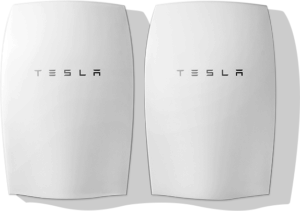 This article provides an overview of the three predominant batteries on the market. As a follow up, our next blog will continue the battery discussion to help you determine which type is best for your specific needs.
This article provides an overview of the three predominant batteries on the market. As a follow up, our next blog will continue the battery discussion to help you determine which type is best for your specific needs.
LEAD ACID BATTERIES
These batteries come in two types: Flooded Lead-Acid and Valve Regulated Lead-Acid (VRLA). Each type has a heavy footprint and can require a specific foundation (depending on the height of the stack). You will need to ensure proper ventilation of the storage area and take extra care when disposing of Lead Acid batteries because they are toxic. On the plus side, these batteries can be recycled.
Flooded Lead Acid
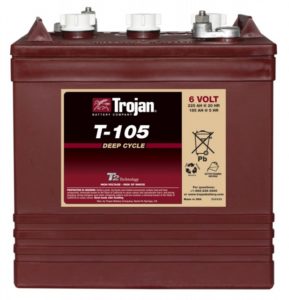 Flooded Lead Acid batteries have been used in off-grid applications for decades and are quite reliable. They are deep cycle and are akin to having a string of large car batteries wired together in your garage. The batteries need to be regularly monitored and maintained following a time-consuming protocol. It’s kind of like having another pet. When properly cared for, a Flooded Lead Acid battery can cycle for seven years or more.
Flooded Lead Acid batteries have been used in off-grid applications for decades and are quite reliable. They are deep cycle and are akin to having a string of large car batteries wired together in your garage. The batteries need to be regularly monitored and maintained following a time-consuming protocol. It’s kind of like having another pet. When properly cared for, a Flooded Lead Acid battery can cycle for seven years or more.
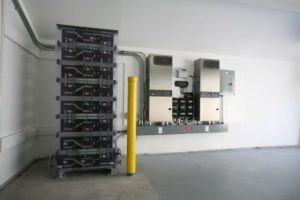
Valve Regulated Lead Acid (VRLA)
VRLA batteries come in Absorbed Glass Matt (AGM) and gel models. These batteries are great alternatives to back-up generators. VRLA batteries can last longer than Flooded Lead Acid batteries and are primarily used as a back up to the grid, although they can be used off-grid as well.
PROs – Why you should buy this type of battery
- The most affordable batteries on the market
- Lead Acid batteries as a back-up system have a deep depth of discharge and can be depleted down to 80%
- If you have the space, VRLA batteries are a great way to go
- Can be recycled
CONs – Why you should not buy this type of battery
- Low energy density
- Flooded Lead Acid batteries need more maintenance than any of the other batteries mentioned in this article
- VRLA batteries are generally maintenance-free, but an engineered foundation may be required
- Sensitive; the area in which the batteries are stored needs to be properly ventilated
- Batteries are toxic and heavy
- Cycles: 450-700
Top manufacturers include: Trojan, GNB, Deka, East Penn, Rolls
LITHIUM ION BATTERIES
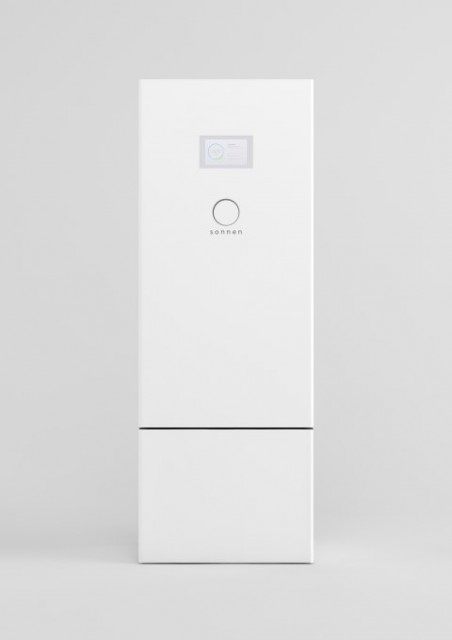
This is the type of battery used in your cell phone, power tools, electric cars, and now solar energy storage. It is the most common type of battery in the world.
Lithium Ion batteries generally provide more cycles than Lead Acid, and they can be fully depleted providing you with a 100% depth of discharge. This makes them an excellent choice to provide back-up energy from the grid. Because they are more efficient, they lose less energy while idle compared to other battery types. Lithium Ion batteries also have a high energy density which makes them considerably lighter than Lead Acid.
Lithium Ion batteries are available in both organic and inorganic cells. Organic cells contain no toxins and can be disposed of easily, whereas inorganic cells are toxic and need to be disposed of properly (usually for a fee). Most Lithium Ion batteries on the market are the inorganic kind.
From a pricing standpoint, these batteries are generally twice as expensive as Lead Acid Batteries and usually come with a ten-year warranty.
PROs – Why you should buy this type of battery
- High energy density
- Higher cycle life than Lead Acid (2000+ cycles)
- Depth of discharge to 100%
- More efficient than Lead Acid
- Much lighter in weight than Lead Acid batteries
- Self-discharge 1-3 % per week
- Easy to install; all-in-one units are available
CONs – Why you should not buy this type of battery
- The price of Lithium Ion batteries is twice the cost of Lead Acid Batteries
Top manufacturers include: Lithionics, Sonnen, LG, Tesla, Powerstation
SODIUM ION BATTERIES
The Blue Sky Energy team attended the annual NABCEP (North American Board of Certified Energy Practitioners) conference in San Diego, CA and we were quite impressed by a demonstration of the new Aquion Sodium Ion Battery, which is a clean and safe saltwater battery manufactured here in the USA.
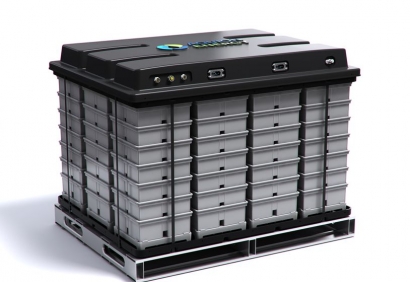 These batteries have a 2000+ cycle limit, and like Lithium Ion batteries, you can take them down to 100% depth of discharge. They have a fairly low energy density so they are heavy, but not as heavy as Lead Acid batteries.
These batteries have a 2000+ cycle limit, and like Lithium Ion batteries, you can take them down to 100% depth of discharge. They have a fairly low energy density so they are heavy, but not as heavy as Lead Acid batteries.
As for cost, Sodium Ion batteries fall in the middle between Lead Acid and Lithium Ion. The model made by Aquion comes with an 8-year warranty.
PROs – Why you should buy this type of battery
- Completely non-toxic
- Higher cycle life than Lead Acid (2000+ cycles)
- Depth of discharge to 100%
- Self-discharge 1-3% per week
CONs – Why you should not buy this type of battery
- Low energy density ratio (they are heavy, but lighter than Lead Acid batteries)
- Higher price point than Lead Acid Batteries
In summary, I hope this helps to clarify the question which battery is best for my battery back up and what the major differences between each type of battery available for back-up systems. In our next article, we will go into more depth about how to choose the battery that suits your specific needs.
If you wish to discuss the right solar solution for your home or business, please connect with us and discover how easy it is to go green.




